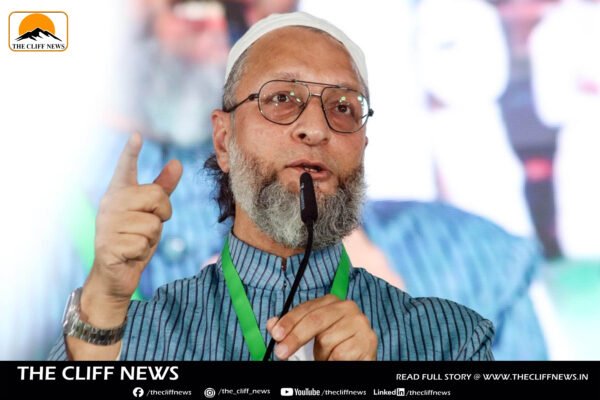Owaisi Slams Bilawal Bhutto’s ‘Blood Will Flow’ Remark, Backs IWT Suspension and Calls for Cyber Action Against Pakistan
All India Majlis-e-Ittehadul Muslimeen (AIMIM) chief and Hyderabad MP Asaduddin Owaisi on Monday strongly criticised Pakistan Peoples Party (PPP) chairman Bilawal Bhutto-Zardari for his inflammatory remarks following India’s withdrawal from the Indus Waters Treaty (IWT). Bhutto-Zardari had declared, “The Indus is ours and will remain ours—either our water will flow through it, or their blood.” In response, Owaisi reminded him of the assassination of his mother, former Pakistani Prime Minister Benazir Bhutto, stating she was killed by “homegrown terrorists” within Pakistan. Owaisi also took aim at former Pakistani cricketer Shahid Afridi, referring to him as a “joker” for his comments on the April 22 Pahalgam terror attack, in which 26 Indian tourists lost their lives. The AIMIM leader expressed outrage over Pakistan’s continued support for terrorism and asserted that the country should be placed back on the grey list of the Financial Action Task Force (FATF), which monitors global money laundering and terror financing. Speaking to the media, Owaisi declared his support for the Indian government’s decision to suspend the World Bank-brokered Indus Waters Treaty. The treaty granted India rights over the eastern rivers—Sutlej, Beas, and Ravi—while Pakistan was allocated the western rivers—Indus, Jhelum, and Chenab. Owaisi questioned the logistical implications of the suspension, specifically raising concerns about how India plans to store the additional water from the western rivers, which carry an average annual flow of around 135 million acre-feet. He also urged the Indian government to consider launching cyber attacks on Pakistan, citing Article 51 of the United Nations Charter, which allows member states to act in self-defence. He emphasized that deterrence needs a new approach, as attacks like the one in Pahalgam continue to occur despite India’s past airstrikes. In a scathing rebuke of Pakistan’s internal dysfunction, Owaisi added, “Pakistan should understand that India’s defence budget is bigger than their entire national budget. They are 20 years behind us. That country is facing severe internal crises—they can’t even manufacture malaria medicine but continue to make hollow threats against India.” On a separate note, Owaisi voiced opposition to certain provisions in the Waqf Amendment Act, arguing they contravene constitutional principles. He particularly objected to the inclusion of non-Muslims on Waqf boards, drawing a parallel by asking, “Wouldn’t it be painful if we asked for non-Hindus to be included in the Pandharpur temple trust?”










